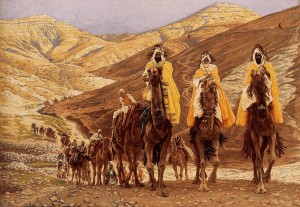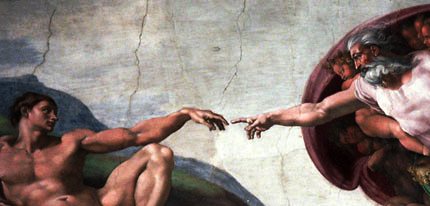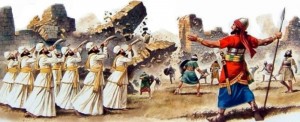I am one of those readers who reads with a pen in hand. I almost cannot read a book unless I am underlining statements and scribbling in the margins. This slows down my reading speed significantly, but I think it helps sharpen my mind and interact with the ideas of others.
My goal is to read 4000 books in my lifetime, and this post will keep track of my progress in 2016.

I already own more books than I can read in a lifetime (which I find highly depressing), and so I buy fewer books than I used to, and I have begun to weigh the pros and cons of any book I read. It’s a little crass, but when I consider whether or not I should read a book, I often think of Elaine from Seinfeld wondering if a boyfriend was “sponge worthy.”
Anyway… with that image in mind … here are the books I have read so far:
- Birth-2009 Estimate: 1500 (doesn’t count children’s books)
- 4000 Books 2010: 45
- 4000 Books 2011: 69
- 4000 Books 2012: 52
- 4000 Books 2013: 57
- 4000 Books 2014: 57
- 4000 Books 2015: 55
- 4000 Books 2016: See Comments Below
- Total so Far: 1835
Some of these books make it onto my list of “The Books Every Christian Should Read.” If you haven’t read the books on that list … well, you should.
What books have you read this past year which influenced your life and theology? What books are you excited to read in 2016?





 Then in the fall of 2015 I decided to launch two podcasts. The first is the
Then in the fall of 2015 I decided to launch two podcasts. The first is the  People want me to continue writing the blog, and a large number of people have asked for me to teach some online courses. So this is one of my major goals in 2016. I plan on beginning with a course on the gospel, with a special emphasis on the relationship between faith and works. So look for this course to begin sometime (hopefully) in January.
People want me to continue writing the blog, and a large number of people have asked for me to teach some online courses. So this is one of my major goals in 2016. I plan on beginning with a course on the gospel, with a special emphasis on the relationship between faith and works. So look for this course to begin sometime (hopefully) in January. Then I plan on publishing 4 more books in 2016 as well. If that sounds like a lot, don’t worry… all four are already written. They just need to compiled, edited, typeset, and published. As a preview, these books will be on (1) Church and pastoral Leadership, (2) How your church can incorporate Kingdom principles in the new millennium, (3) A study on Genesis 1 (based on my podcasts), and (4) A new look at the atonement.
Then I plan on publishing 4 more books in 2016 as well. If that sounds like a lot, don’t worry… all four are already written. They just need to compiled, edited, typeset, and published. As a preview, these books will be on (1) Church and pastoral Leadership, (2) How your church can incorporate Kingdom principles in the new millennium, (3) A study on Genesis 1 (based on my podcasts), and (4) A new look at the atonement.![[#21] Genesis 1:28-31 – Sex, Food, and Animals](https://redeeminggod.com/wp-content/uploads/2015/09/One-Verse-Podcast-Jeremy-Myers-150x150.jpg)
 Is the chief end and purpose of man, as many dry and dusty old theologians like to say, “to glorify God and enjoy Him forever”? If that’s the case, it’s no wonder that many people want nothing to do with God, with theology, or with Christianity.
Is the chief end and purpose of man, as many dry and dusty old theologians like to say, “to glorify God and enjoy Him forever”? If that’s the case, it’s no wonder that many people want nothing to do with God, with theology, or with Christianity.

 What does it mean to be made in the image of God? We began to see an answer to this in
What does it mean to be made in the image of God? We began to see an answer to this in 


 But when we begin to understand the birth of Jesus (and His entire life), we begin to see how politically and religiously subversive Jesus really was. To see some of this, read my
But when we begin to understand the birth of Jesus (and His entire life), we begin to see how politically and religiously subversive Jesus really was. To see some of this, read my  The shepherds were considered by most to be dirty, outcast thieves, and while the wise men from the East are often called “Kings” (though they were likely not kings at all), most people in Israel would have considered them to be religiously unclean, astrology-practicing, sinful foreigners. Modern parallels might be street hustlers and fortune tellers.
The shepherds were considered by most to be dirty, outcast thieves, and while the wise men from the East are often called “Kings” (though they were likely not kings at all), most people in Israel would have considered them to be religiously unclean, astrology-practicing, sinful foreigners. Modern parallels might be street hustlers and fortune tellers. 



 In Joshua 6, Joshua leads the people of Israel in their first campaign against the Canaanites. This is the battle of Jericho. After the walls of Jericho fell down, Joshua instructs the people to go into the city and kill everything, including the women, children, and animals, and then burn everything (Joshua 6:17-24). The only people who were spared were those who accepted and helped the Israelite people, which in this case, consisted of a prostitute named Rahab and her family.
In Joshua 6, Joshua leads the people of Israel in their first campaign against the Canaanites. This is the battle of Jericho. After the walls of Jericho fell down, Joshua instructs the people to go into the city and kill everything, including the women, children, and animals, and then burn everything (Joshua 6:17-24). The only people who were spared were those who accepted and helped the Israelite people, which in this case, consisted of a prostitute named Rahab and her family.
 In Joshua 10, we have a long listing of all the groups of people that Joshua slaughtered. This list is so long, it carries over into Joshua 11.
In Joshua 10, we have a long listing of all the groups of people that Joshua slaughtered. This list is so long, it carries over into Joshua 11. The first Joshua sought to kill others in the name of God, while the second Joshua allowed Himself to be killed so that He might reveal God.
The first Joshua sought to kill others in the name of God, while the second Joshua allowed Himself to be killed so that He might reveal God. Are you an environmentalist? Maybe you think environmentalist are those tree-hugging, liberal lunatics who fight for the rights of rainforest birds and Pacific salmon while ignoring the humans and unborn babies.
Are you an environmentalist? Maybe you think environmentalist are those tree-hugging, liberal lunatics who fight for the rights of rainforest birds and Pacific salmon while ignoring the humans and unborn babies.